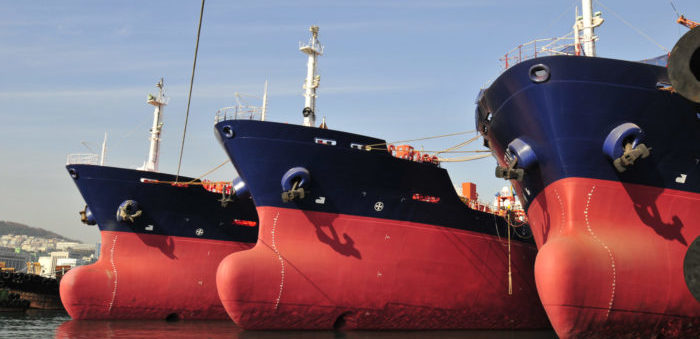The Swedish Club informs that certain fractions in Libya are selling government oil assets on the black market. The legitimate government based in Tripoli wants to stop this practice and is applying drastic measures against any vessel and crew which is considered to be part of these operations.
The Libyan Navy boards tankers suspected of heading to a clandestine loading port and both crew and vessel are seized and taken to Tripoli, where they will wait a further investigation which may lead to a trial.
The investigation could last as two years and some crewmembers have been in prison for over two years without any prospect of release in the foreseeable future. During this time, the vessels have remained at anchor.
As the Swedish Club describes:
There is an ongoing case pending where the vessel having discharged fuel oil in October 2017, dropped anchor in the gulf of Sirt awaiting orders. The vessel was seized and the crew removed. Then with Libyan Navy personnel on board the vessel was sailed to Tripoli, where it remains. Shtewi Legal and Pandi acting for the owners were able to obtain the release of the crew who were flown back to the Philippines. However, the officers are still detained in prison. Despite many representations to the Prosecutors office there is still no date set for the trial or even an indication whether a trial will take place or the officers and vessel released.
[smlsubform prepend=”GET THE SAFETY4SEA IN YOUR INBOX!” showname=false emailtxt=”” emailholder=”Enter your email address” showsubmit=true submittxt=”Submit” jsthanks=false thankyou=”Thank you for subscribing to our mailing list”]
For these reasons it is important that operators take special measures to avoid this happening to them, by doing the following:
- When offering your vessel for charter for a voyage to Libya, obtain from the charterer a guarantee that the cargo they are about to load has been purchased through the National Oil Company of Libya who has sole rights and control of any oil exports.
- Any charterer approached by cargo interests should establish their legitimacy and their right to load oil from Libya and should be provided with a letter or document to that effect.
- Product tankers delivering fuel oil to Libya, should, after delivery operations have been completed and the vessel given permission to leave the port, sail directly out of Libyan waters without deviation or delay as such deviation or delay has been interpreted by the authorities as suspicious and giving rise to the accusation that the Master is waiting to load an illegal cargo.
- When leaving the Libyan coast, all vessels should in no circumstances follow the coast line but head straight out into the Mediterranean.






























































